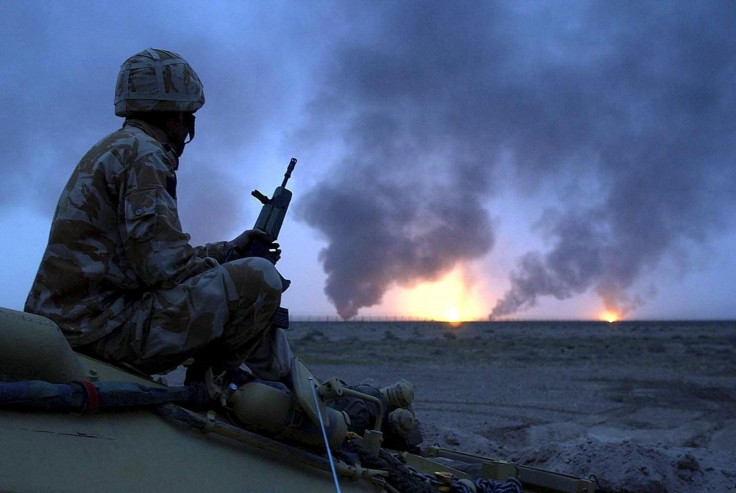'Conspiracy theorists right' that foreign intervention in civil wars driven by 'thirst for oil'

Researchers say they have provided evidence for claims "conspiracy theorists have long thought" – that countries are more likely to intervene in civil wars in oil-rich nations.
According to the study by the universities of Warwick, Portsmouth and Essex, a "thirst for oil" is the main motivation for foreign intervention over any historical, geographical or ethnic ties.
The study suggests oil was the main reason for military intervention in the Libyan civil war – which the UK was involved in – as well as one of the main motivations for the current campaign against the Islamic State (Isis).
The research examined every country which has had a civil war between 1945 and 1999. The study found out of the 69 civil wars which occurred after World War II, around 33% saw third party intervention either by another country or outside organisation.
Outsiders are much more motivated to join a fight if they have a vested financial interest
Dr Petros Sekeris, from the University of Portsmouth, said: "We found clear evidence that countries with potential for oil production are more likely to be targeted by foreign intervention if civil wars erupt.
"Military intervention is expensive and risky. No country joins another country's civil war without balancing the cost against their own strategic interests and what possible benefits there are.
"We wanted to go beyond conspiracy theories and conduct a careful, nuanced analysis to see whether oil acts as an economic incentive in the decision on whether to intervene in an internal war in another country.
"The results show that outsiders are much more motivated to join a fight if they have a vested financial interest."
The study lists examples where this claim is validated, such as the UK's involvement in Nigeria's 1967-70 civil war in contrast to the no action taken in wars of other former colonies which had no oil reserves, such as Sierra Leone and Zimbabwe.
The researchers also noted that both the US and the UK did not intervene in the Syrian civil war.
At the other end of the spectrum, oil-rich states such as Gulf States, Mexico and Indonesia have no history of military intervention in other countries' civil wars.
The authors argue the research could help explain the US interest in Islamic State in northern Iraq.
Dr Vincenzo Bove, from the University of Warwick, said: "Before the IS forces approached the oil-rich Kurdish north of Iraq, IS was barely mentioned in the news. But once IS got near oil fields, the siege of Kobani in Syria became a headline and the US sent drones to strike IS targets.
"We don't claim that our findings can be applied to every decision made on whether to intervene in another country's war, but the results clearly demonstrate supply of and demand for oil motivates a significant number of decisions taken to intervene in civil wars in the post-World War II period.
"The 'thirst for oil' is often put forward as a near self-evident explanation behind the intervention in Libya and the absence of intervention in Syria. Many claims are often simplistic but, after a rigorous and systematic analysis, we found that the role of economic incentives emerges as a key factor in intervention."
© Copyright IBTimes 2024. All rights reserved.






